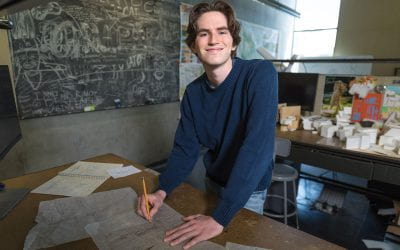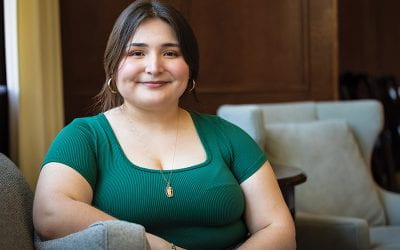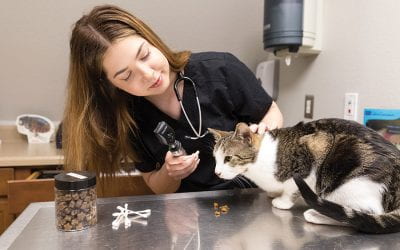
By Katie Wilson Powell
First-time parents deal with an overwhelming number of questions as they await the arrival of their bundles of joy. What will they eat? When will they sleep? How do we keep them warm/happy/healthy/full? Add to this timeless list the question of whether or not to deploy the use of artificial intelligence in the nursery, and parents may lose sleep even before baby’s arrival.
“From our parents’ generation to now, so much has changed,” said Gabrielle Krupa, a senior communications sciences and disorders major. Apps and devices that track a baby’s every move have become a growing source of concern for parents, child development specialists and the ever-opinionated extended family member. But do new technologies impact how parents bond with their newborn? Gabrielle Krupa and Sutton Bauman set out to explore this important question as part of their honors thesis research, focusing specifically on AI-assisted technologies beginning at birth.
“Ultimately, technology is an assistant in parenting, never a replacement,” said Sutton Bauman, a senior communications sciences and disorders major with a background in human development. In order to explore the relationship between technology and parenting, Krupa and Bauman provided four sets of new parents with a SNOO — a “smart bassinet” parents can use in the first six months of a baby’s life (or until baby can roll over independently) that senses discomfort and movement. The SNOO works to soothe a baby back to sleep with a sound machine that mimics the womb and accelerating movement that provides comfort while they are swaddled and strapped in. As part of this technology, the SNOO is connected to an app that tracks the baby’s sleep time, wakings, and levels of upset in order to help parents find potential soothing patterns. Bauman and Krupa asked each new family to keep a journal and meet with their research team once a week until their baby had transitioned to a traditional crib. During these weekly meetings, they asked new parents questions about technology, relationships and that ever-evasive good night’s sleep.
“Parenting is just better during the day if parents are sleeping at night.”
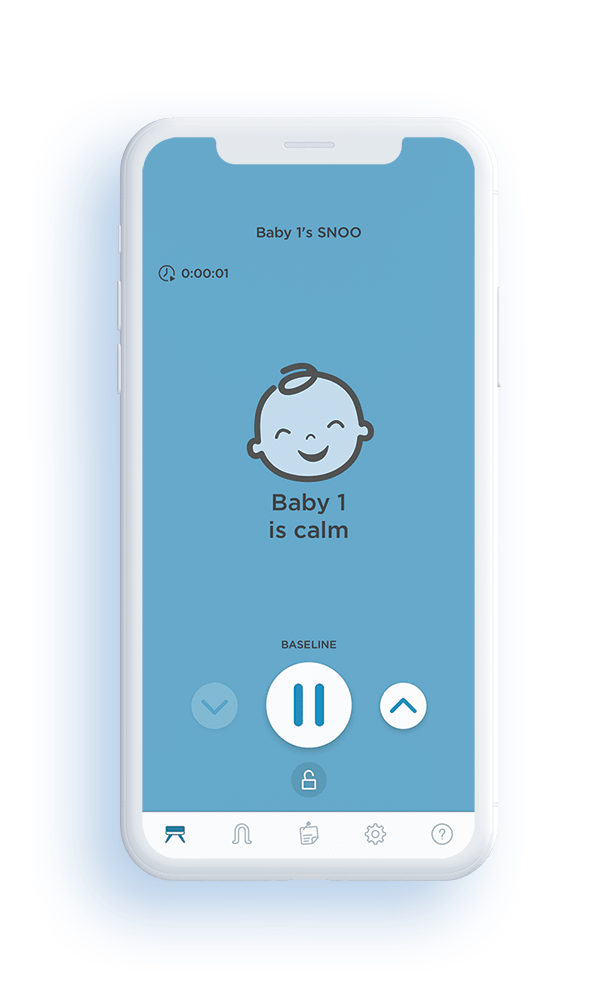
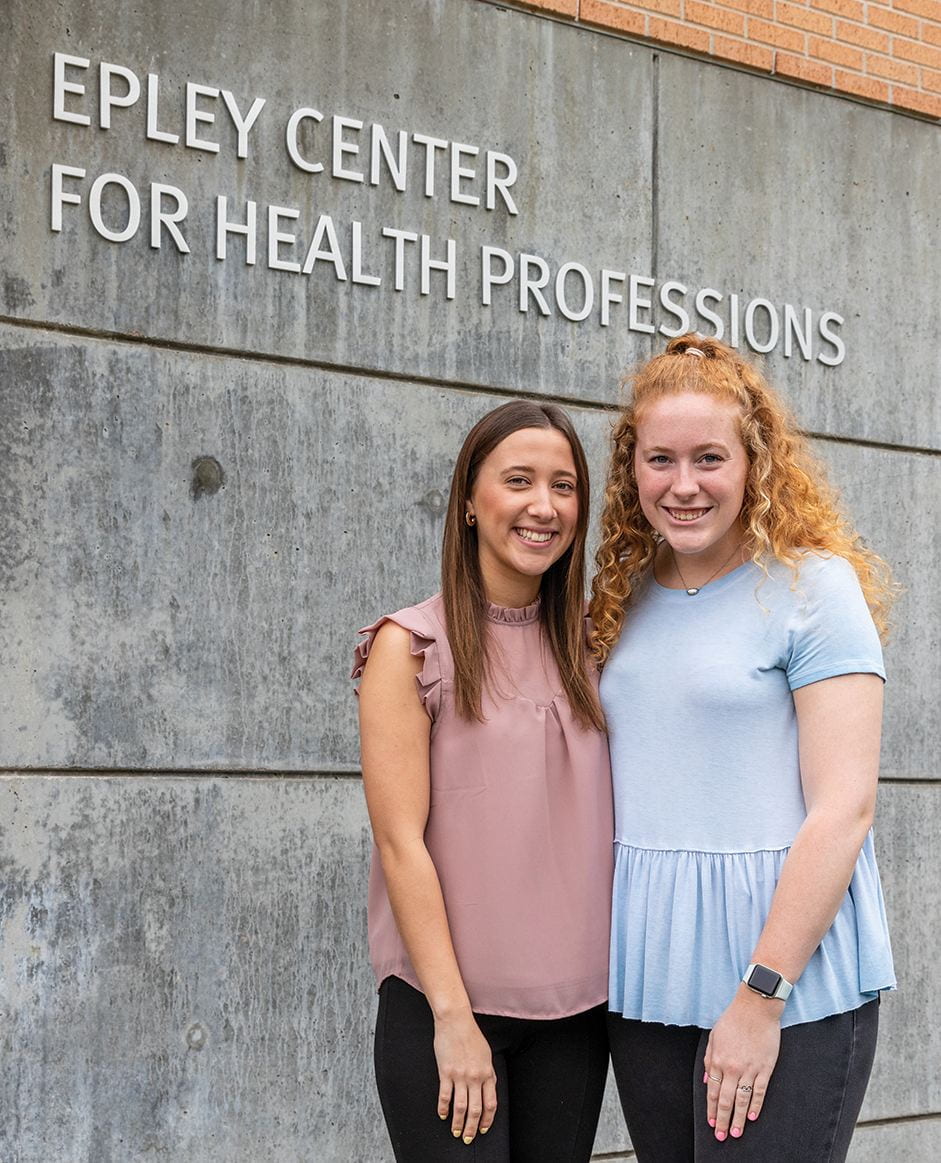
Bauman and Krupa. Photos by Chieko Hara
“When first introduced to the SNOO while they were still pregnant, mothers tended to be skeptical about its use, consulting social media sites and information to determine its fit in their family,” said Bauman, whose research focused on the different relationships mothers and fathers had to technology. “Fathers, on the other hand, trusted the SNOO’s involvement in their new life.” Krupa and Bauman found that extended family support was vital in those early days, but these extended family members often felt uncomfortable with the SNOO. Adding to this discomfort was a sense of guilt for many parents. “We found that there were a lot of expectations around the SNOO and how much it could really do,” said Krupa, who focused on the use of AI for babies born prematurely versus those who were carried full term. “There was also a lot of guilt about letting technology ‘do its thing.’”
Family journals tended to be more frantic and stressed (often scribbled down desperately in the middle of the night) than what was reflected in the weekly meetings, when the light of day calmed all nerves.
“As their babies grew older, extended family left, and both parents returned to work, we found that both parents became more confident in their roles with childcare,” Bauman said. “Parents turned to technology, including the SNOO, to help,” Krupa said. In addition to the SNOO, parents also relied on apps that tracked food and sleep.
Parenting is an emotional topic, and both Krupa and Bauman found the personal nature of their research to be impacted in the ways in which it was received. Bauman, who presented her findings at the American Speech–Language–Hearing Association, found that colleagues in the field questioned the role of technology and were skeptical as to the use of the SNOO in single-parent households and low-income households (the SNOO costs $1,600). Though Bauman and Krupa recognized the potential work to be done testing the SNOO with a larger and more diverse group of parents, Bauman concluded that “parenting is just better during the day if parents are sleeping at night. Our study definitely does have limitations, but we are proud to shed a positive light on the benefits of technology.”
Both young women are entering the U of A’s graduate program for communication science and disorders, and will be rooming together as a result of their collaboration on this project. As future leaders in the field of early childhood development, both are eager to attest to the power of technology. “Technology is on the rise,” Bauman said. “It’s obviously a part of our life that we can’t shut out anymore, so it’s important to use it as a tool.”
“A lot of people like to give the opinion that technology is bad,” Krupa added, “but all that matters is what works for you and your child. As long as you prioritize your relationship and don’t let technology get in the way, you don’t have to worry about other people’s opinions besides your own.”
Krupa’s research was supported by a SURF grant; Bauman received an Honors College Research Grant.
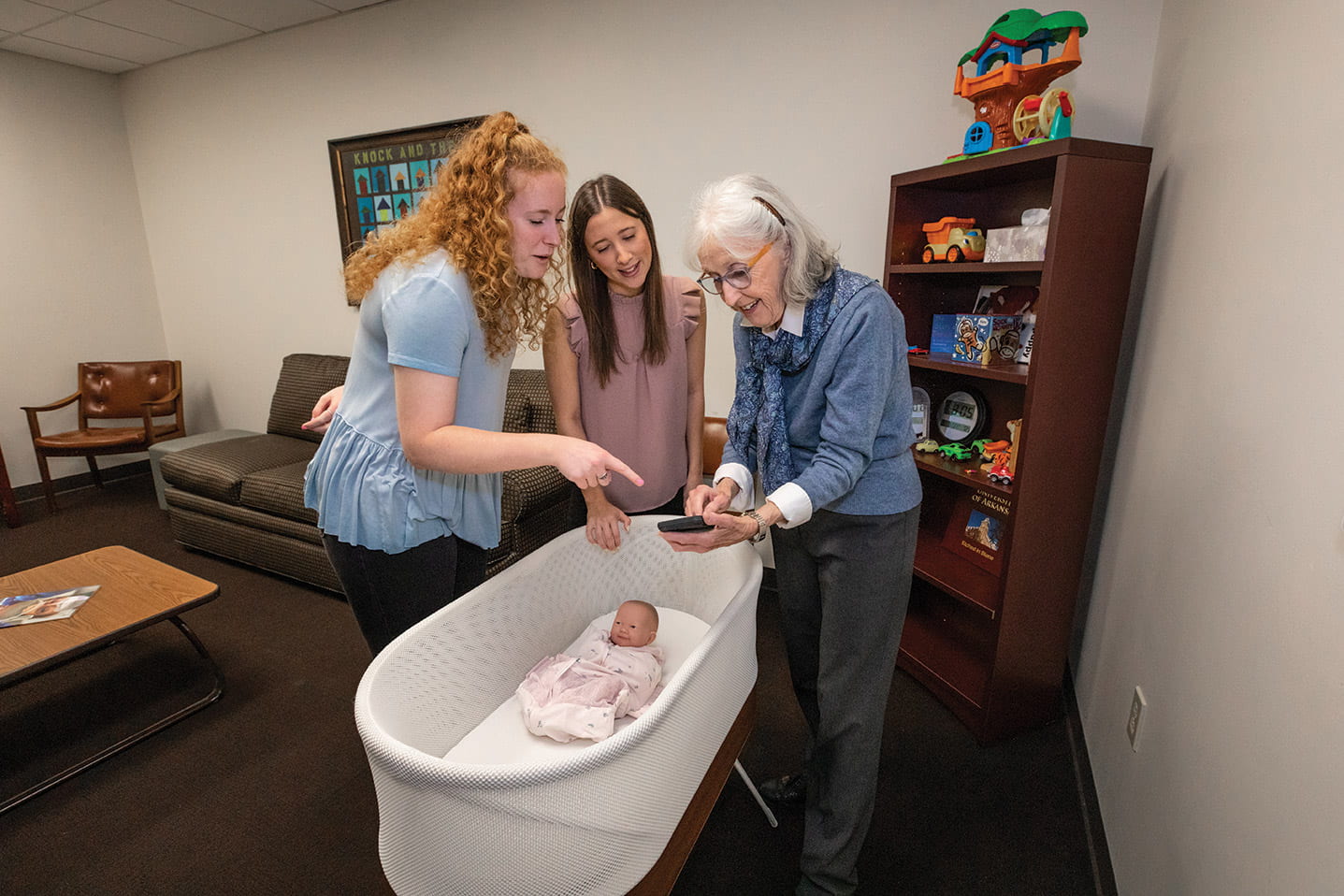
Gabrielle Krupa, Sutton Bauman and mentor Fran Hagstrom examine the app in the family room of Hagstrom’s lab.
More Field Notes
Daylighting Hot Springs
When Zane Colvin moved from rural Wynne to bustling Hot Springs, he was wowed by the urban energy of his new home, but curious about the hot springs — where were they? Check out his bold proposal for Arkansas’ top tourist attraction.
Brand Fans
For her honors thesis, Madeline Braun explored how the Kansas City Chiefs and the Razorbacks cultivate identity loyalty within their own brands. To find the secret sauce, she distributed a survey asking both Chiefs and Razorbacks devotees to answer questions about their sense of pride and loyalty in their team.
Colorblind Quadrilles? A Closer Look at Bridgerton
For her honors thesis, senior political science major Daniella Ruiz Cantú knew that she wanted to combine her studies in both sociology and political science with her interest in film. She was confused why, despite numerous successful films featuring people of color front and center — like Coco and Crazy Rich Asians — she continued to encounter racism in the news and in person. After taking Lisa Corrigan’s honors colloquium in communications, she learned of one possible explanation: the reinforcement of the white gaze in media.
A New Angle On Climate Change
Dawson Oakley, a biological engineering senior, Honors College Fellow and hobbyist videographer with a passion for the outdoors and sustainability, decided to merge his interests by developing a video that raises awareness about climate change issues and showcases how engineering is being used to mitigate them.
Pandemic Pet Care
Animal science majors Kayla DeSmet and Sabrina Cox labored in the trenches throughout the pandemic — DeSmet working at a hospital for small and exotic animals in Fayetteville, while Cox learned the ropes at a Tontitown clinic that cares for pets and livestock. For their honors thesis research, they decided to document COVID-19’s day-to-day and long-term impacts on the companion animal industry from 2020 to 2021.


